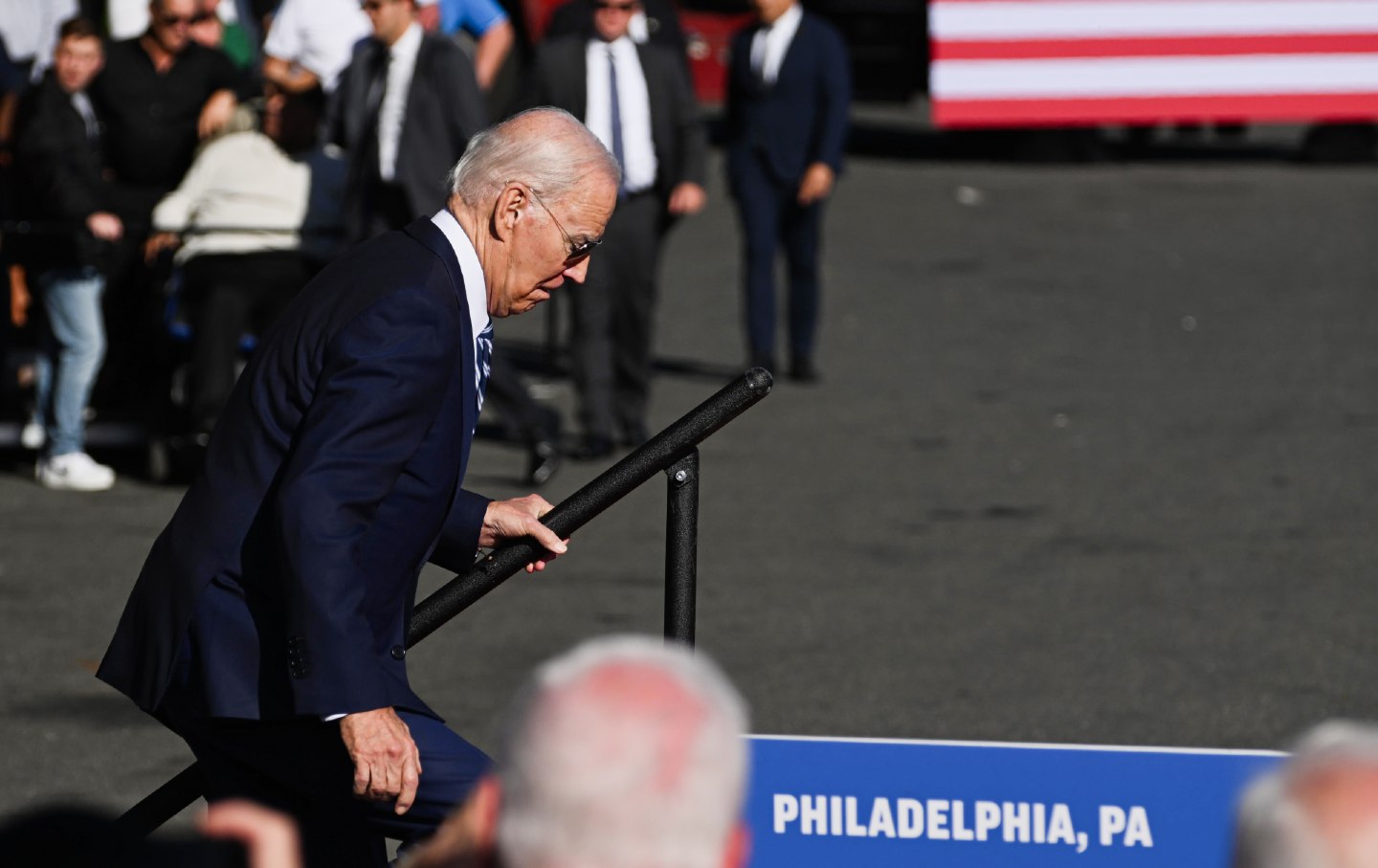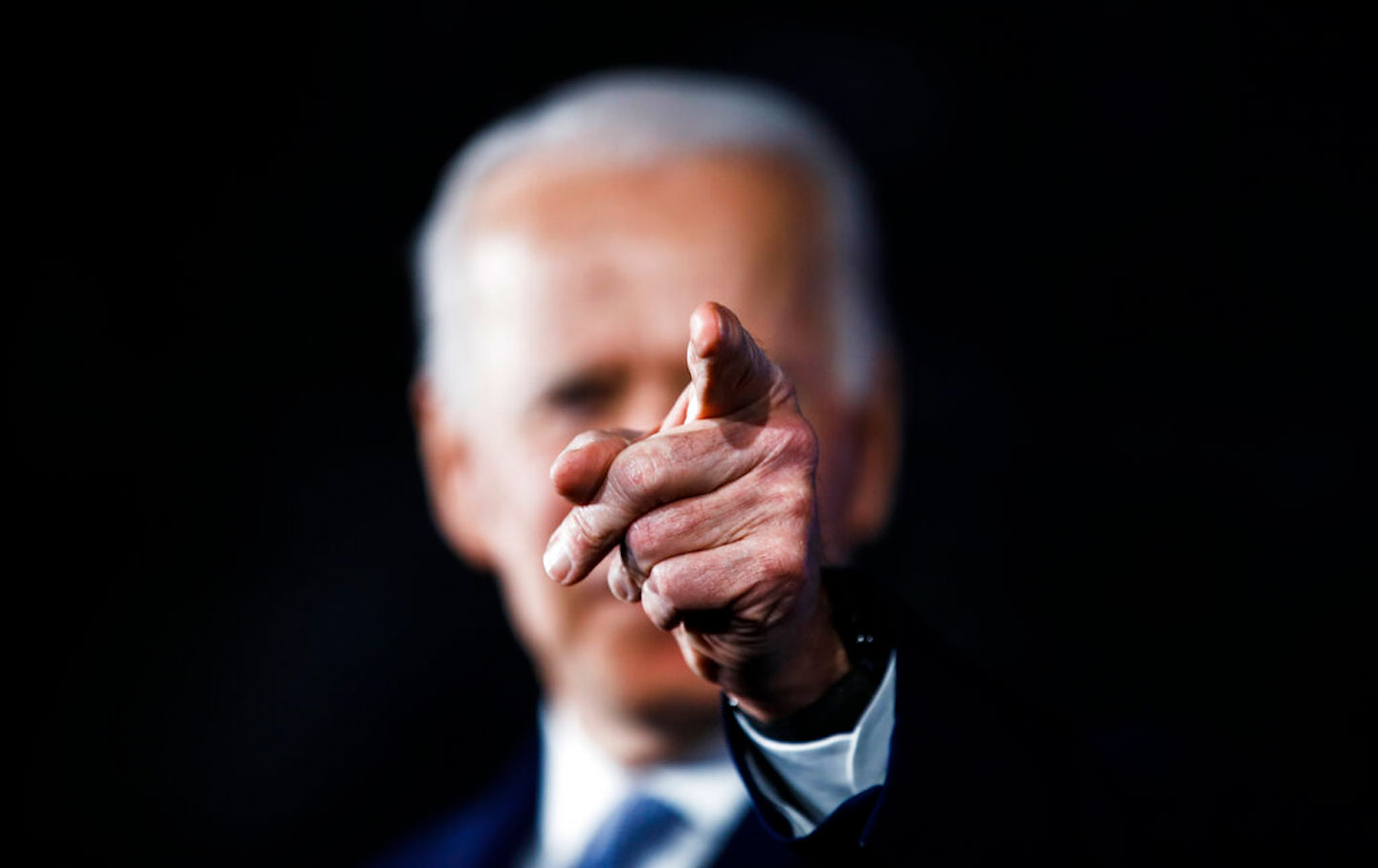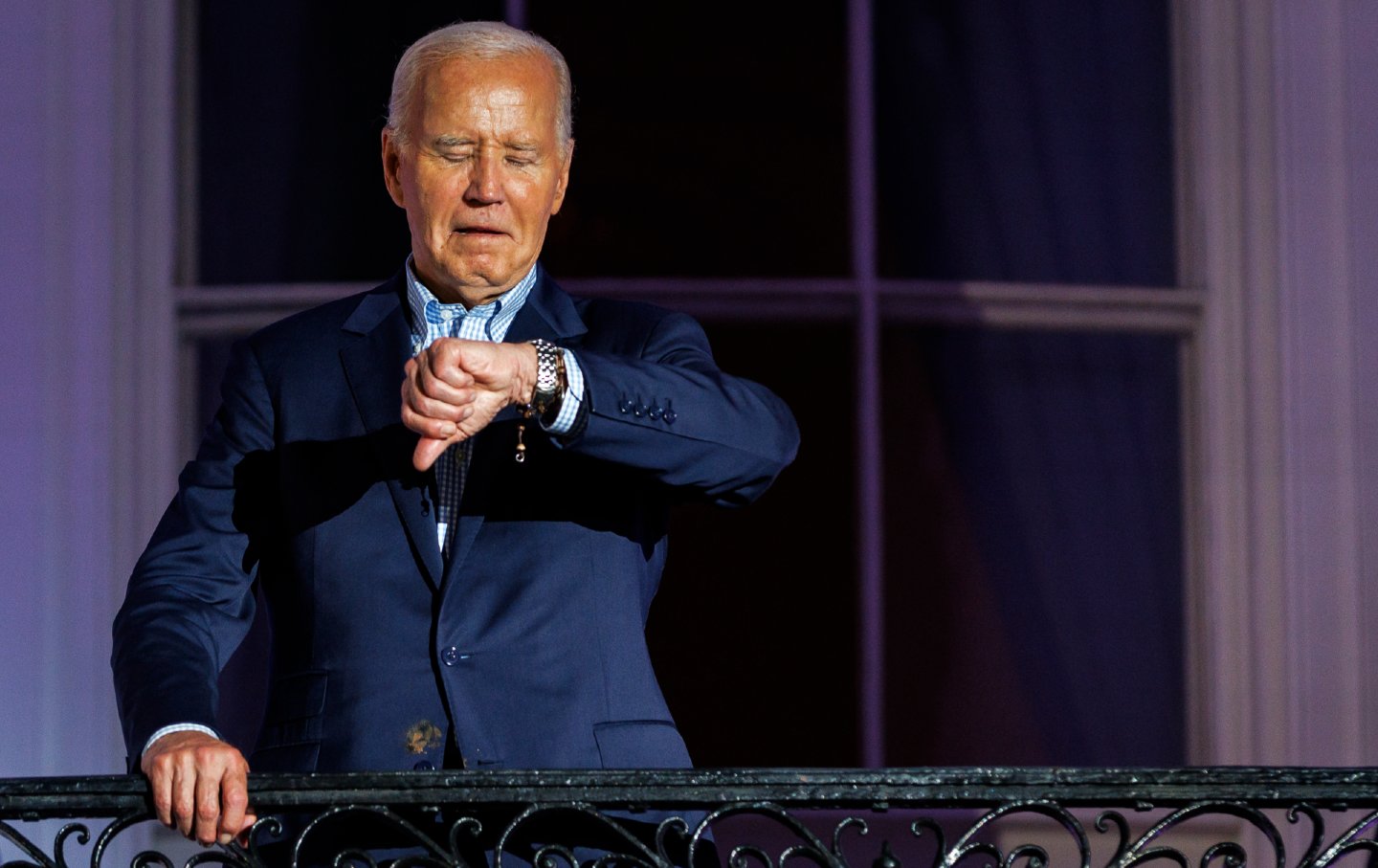Is doubling down on a candidate who is almost certainly going to lose really the best the left can do?

Anyone reading this recognizes that the Democratic Party has been in deep crisis since the June 27 debate between President Biden and Donald Trump.
Yet I think we are collectively still avoiding its full implications. Our discourse is shaped by coded language, allusions and illusions, and inchoate hopes that somehow events will straighten themselves out.
Plain speaking is called for.
President Biden is not experiencing a “condition,” as suggested by Nancy Pelosi on July 2 (“I think it’s a legitimate question to say, is this an episode, or is this a condition?”) and George Stephanopoulos in the July 5 interview (“Was this a bad episode or the sign of a more serious condition?”). To the tens of millions who watched the debate, including me, he appeared to be suffering from significant cognitive impairment. His staff shield him from virtually all unscripted encounters, and as investigations by The New York Times and The Washington Post document, his condition has grown markedly worse in recent months.
If the appearance of cognitive decline is accurate, it will likely accelerate, making further debates, interviews, and press conferences even less viable than they are now. Only the president can agree to a neurological examination to disprove this perception, but he dismisses that option out of hand. When Stephanopoulos asked “Would you be willing to undergo an independent medical evaluation that included neurological and…cognitive tests and release the results to the American people?,” the president replied, “Look, I have a cognitive test every single day. Every day, I have that test, everything I do. Not only am I campaigning, but I’m running the world.” In no way is that reassuring.
If correct, the electoral implications are truly dire: a “landslide” for Trump, as Senator Michael Bennet has warned.
On November 5, millions of Democrats will stay home, knowing there is no chance of victory. Millions of others will either switch to Trump (the “suburban women” key to Democratic victories in 2018, 2020, and 2022) or throw their protest votes to minor candidates (younger voters and others deeply alienated by Biden’s support for mass murder in Gaza).
We face not only a Trump victory but something far worse: a Republican sweep of Congress, even possibly a popular vote majority for the Republican candidate—something that party has only gained once (in 2004) since 1988. Trump will then be entitled to claim an overwhelming mandate for his authoritarian rule: concentration camps for millions of undocumented people, a purge of the federal civil service, deploying the Department of Justice and the FBI to go after his opponents, and so much more.
This danger should concentrate our energies. We have been here before—a desperate president disconnected from reality, holed up in the White House, trying to hang on. That was Richard Nixon in the summer of 1974, as revelations of his personally directing covert attacks on the Democratic Party kept surfacing, finally culminating in a bipartisan vote for articles of impeachment in the House Judiciary Committee.
That was the endgame. On August 7, 1974, the Senate and House Republican leaders, Hugh Scott of Pennsylvania and John Rhodes of Arizona, joined by Barry Goldwater as the leader of the party’s conservatives, went to the White House to tell Nixon he must resign. He did so, speaking to the nation in pathetic unconnected sentences, on August 8.
Powerful donors, major editorial boards, voters across many states via polls, and a handful of Congress members have urged Biden to resign, but they are not getting through. As observers have noted, Joe Biden has built his career on claims to defy the conventional wisdom and is now defying demands to do what would save his party. The Senate and House Democratic caucuses both passed the buck in their meetings on July 9—no full-throated endorsement, just standing pat, waiting to see what happens. No one wants to kill the king, or be cast out—as if normal politics will continue under Trump!
It is notable, in this context, that leading Senate progressives like Bernie Sanders and Elizabeth Warren, Squad members like Alexandria Ocasio-Cortez and Ayanna Presley, and Chicago’s Working Families Party–backed Mayor Brandon Johnson have either equivocated or affirmed that “Joe Biden is our nominee.” Is this really the best the left can do—double down on a candidate who is almost certainly going to lose? As Representative Adam Smith of Washington put it, “The idea that we are going to slow-walk into fascism because we don’t want to hurt somebody that we respect’s feelings—I cannot even begin to tell you how angry that makes me.” It took the wily old pol Nancy Pelosi to insist that all options remain open, telling Morning Joe on July 10 that “it’s up to the president to decide if he’s going to run,” refusing to be pinned down on whether he should stay in.
Until and unless Chuck Schumer and Hakeem Jeffries, joined perhaps by Pelosi and James Clyburn, make that visit to the White House, we remain stuck in never-never land. The president, who has acted as a statesman in important ways and deserves our respect, will be able to pretend to himself that the party still wants him. Let us hope Democratic Party leaders finally grasp the urgency of this moment, and do the hard, necessary, but also humane thing.
Otherwise, we are faced with two prospects as of January 2025: the need for massive civil resistance in the face of unleashed repression, and what we might call “left federalism”—as in the ability of governors and legislatures in states like California, Illinois, Michigan, Pennsylvania, and New York to nullify federal edicts and keep democracy going. A frightening prospect of ever-increasing confrontation, but it may be all we have in the face of the coming juggernaut.
Thank you for reading The Nation
We hope you enjoyed the story you just read, just one of the many incisive, deeply-reported articles we publish daily. Now more than ever, we need fearless journalism that shifts the needle on important issues, uncovers malfeasance and corruption, and uplifts voices and perspectives that often go unheard in mainstream media.
Throughout this critical election year and a time of media austerity and renewed campus activism and rising labor organizing, independent journalism that gets to the heart of the matter is more critical than ever before. Donate right now and help us hold the powerful accountable, shine a light on issues that would otherwise be swept under the rug, and build a more just and equitable future.
For nearly 160 years, The Nation has stood for truth, justice, and moral clarity. As a reader-supported publication, we are not beholden to the whims of advertisers or a corporate owner. But it does take financial resources to report on stories that may take weeks or months to properly investigate, thoroughly edit and fact-check articles, and get our stories into the hands of readers.
Donate today and stand with us for a better future. Thank you for being a supporter of independent journalism.
More from The Nation

With the opposition in disarray, Trump and his campaign have begun exhibiting unusual restraint in hopes of expanding his support.

From his perch in the nation’s highest office, the president has positioned himself as the underdog—against elected Democratic representatives.

As Joe Biden flirts with the Samson Option—threatening to bring his party to ruin in November—he needs to realize that the election isn’t just about him.






